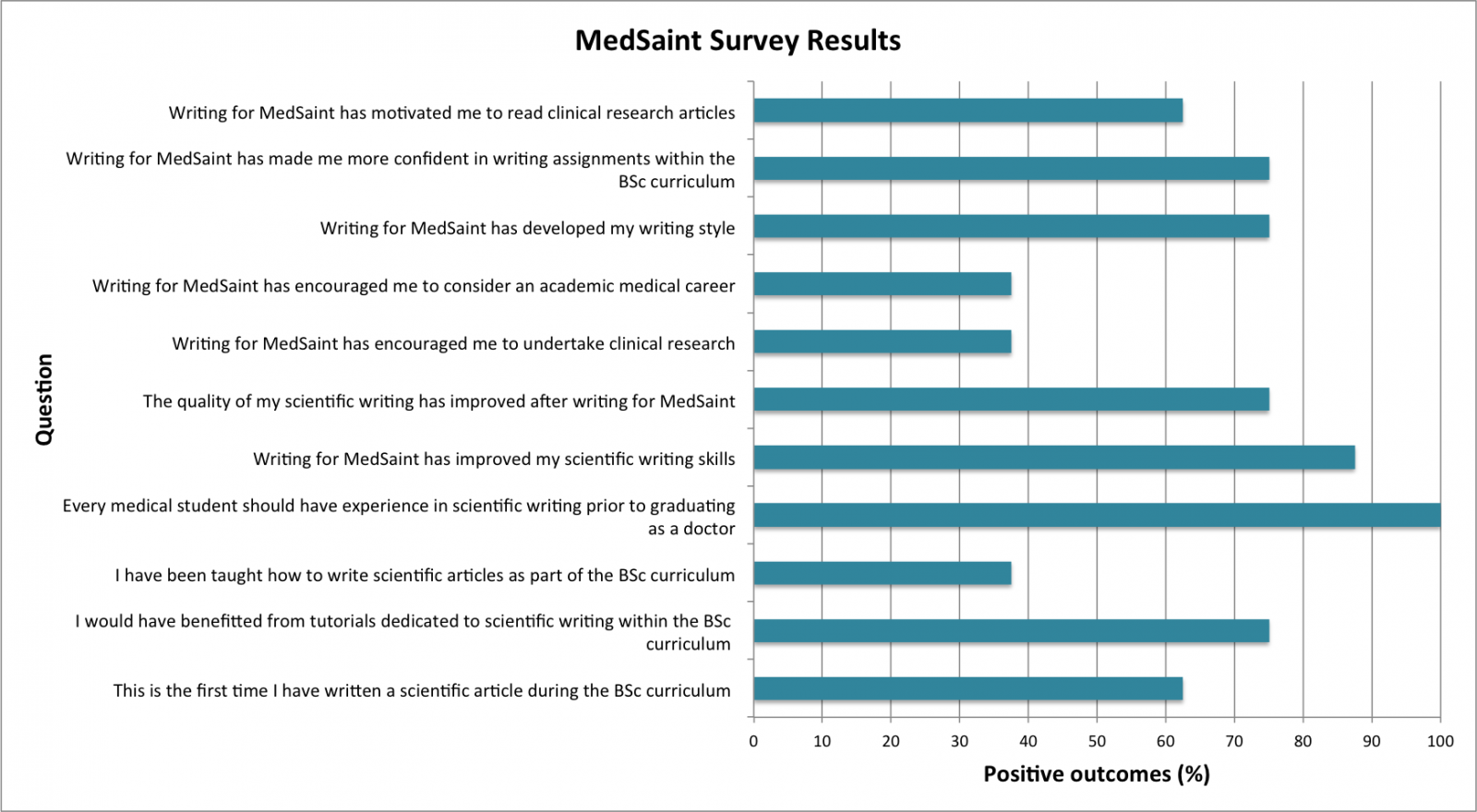
Theme
8AA Communication skills
Title
An investigation into student perceptions of medical journalism as a learning method for scientific writing during a medical undergraduate course
Background
Founded in 2011, MedSaint is a student-run journal at the University of St Andrews that publishes written pieces around a diverse range of topics, from current research, to information pieces, to issues relevant to quotidian student life. Journals have long been considered an effective method of disseminating research and opinions to other academics, as well as to the general public audience. However, undergraduate students often lack the ‘knowledge, confidence and skills to publish their work (Tatalovic, 2008). MedSaint was created as a response to this, designed to serve as a platform to allow medical students to introduce, promote and independently develop their skills in the field of scientific writing.
This year pilots an online version, creating international traffic for the journal, increasing popularity, and adding the incentive of increased recognition for prospective writers. Students from all year groups were encouraged to write articles. No restrictions were placed on style, genre or content. We aimed to evaluation student writers’ perception to the value of medical journalism as a learning method for medical students during the undergraduate BSc course.
Summary of Work
Application to write in MedSaint was optional, and open to all students. After participation in MedSaint, a survey of writers’ opinion of undergraduate medical journalism was completed using a Likert scale (1 to 5: 5 =strongly disagree). Responses of 'agree' or 'strongly agree' were categorised as positive outcomes. Results were statistically analysed.
Summary of Results
Conclusion
This study shows that students benefited from and are more confident in scientific writing after participating in MedSaint. The opportunity to have their work published and reviewed by peers can often serve to boost confidence. Additionally, it also encourages further writing - a particularly important skill for future doctors agreed upon by 100% of survey participants. We therefore suggest more medical journalism initiatives should be introduced into medical curricula, with schools mediating the initial journal establishment to facilitate and encourage participation.

Take-home Messages
Medical schools should consider supporting and developing similar student-run publications as positive contributions to learning methods during the undergraduate course.
References
Sharma S, ‘How to become a competent medical writer’ Perspectives in Clinical Research, 2010 Jan-Mar 1(1): 33-37
Tatalovic M, 'Student science publishing: an exploratory study of undergraduate science research journals and popular science magazines in the US and Europe' Journal of Science Communication, 2008 Sept 7 (3)
Acknowledgement
With thanks to the University of St Andrews for their support of Medsaint, in particular Dean David Crossman and Mr Clive Masson. We would also like to thank the Medical Protection Society for their sponsorship of the journal.



